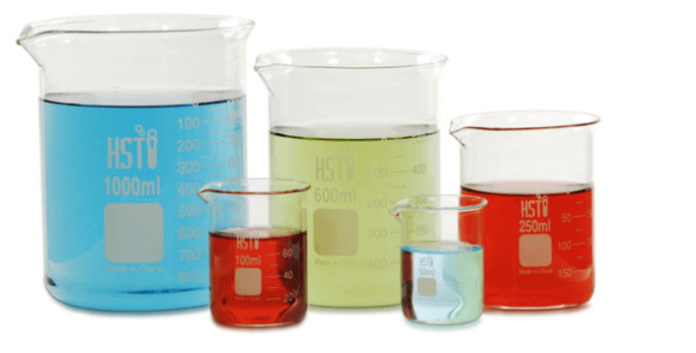In the realm of scientific experimentation, precision and accuracy are non-negotiable. Whether you’re a seasoned researcher or a novice scientist, choosing the right laboratory equipment is crucial for obtaining reliable results. Among the myriad tools at your disposal, the humble beaker science stands out as a fundamental component of any laboratory setup. Its versatility and simplicity make it indispensable for a wide range of applications, from mixing solutions to measuring volumes. However, not all beakers are created equal, and selecting the right one can significantly impact the outcome of your experiments. In this buyer’s guide, we delve into the art of choosing the perfect beaker, equipping you with the knowledge to make informed decisions and enhance the efficiency and accuracy of your laboratory endeavors.
Understanding Beaker Science: Unraveling the Basics
Beakers may appear deceptively simple, but understanding their design and functionality is crucial for selecting the right one for your needs. Typically made of glass or plastic, beakers feature a cylindrical shape with a flat bottom and a spout for easy pouring. The graduations etched along the side allow for precise measurement of liquid volumes, facilitating accurate experimentation. Moreover, the translucent nature of glass beakers enables researchers to observe reactions and monitor changes in color or consistency—an invaluable feature in many scientific disciplines.
Read also: Portable Speakers Buyers Guide – Things to Consider When Choosing
Types of Beakers: Choosing the Perfect Match
When it comes to selecting a beaker, one size does not fit all. Different applications demand different types of beakers, each tailored to specific requirements. Glass beakers, renowned for their heat resistance and chemical inertness, are ideal for experiments involving high temperatures or corrosive substances. Plastic beakers, on the other hand, offer greater durability and are well-suited for general laboratory use where glass may pose a safety hazard. Additionally, beakers come in various sizes, ranging from small capacities for precise measurements to larger volumes for bulk mixing. By assessing your experimental needs and considering factors such as material compatibility, temperature resistance, and volume requirements, you can identify the perfect beaker for your application.
FAQs:
What is the difference between a beaker and a flask?
- While both beakers and flasks are commonly used in laboratory settings, they serve different purposes. Beakers are primarily used for holding and mixing liquids, featuring a cylindrical shape with a spout for pouring. Flasks, on the other hand, are designed for containing and storing liquids, often with a narrower neck and a flat bottom.
Can I heat liquids directly in a plastic beaker?
- While plastic beakers offer greater durability and safety compared to glass beakers, they are generally not suitable for direct heating over an open flame. Plastic may melt or deform under high temperatures, compromising the integrity of the experiment and posing safety hazards. It is advisable to use glass beakers for applications involving heat.
How do I clean and maintain my beakers?
- Cleaning and maintaining beakers is essential for ensuring their longevity and accuracy. After each use, rinse the beaker with distilled water to remove any residues, then wash it with a mild detergent and rinse thoroughly. Avoid abrasive cleaners or harsh chemicals that may scratch or damage the surface. Store beakers in a clean, dry area away from direct sunlight or heat sources to prevent degradation.
Conclusion:
In the realm of laboratory experimentation, the right equipment can make all the difference. When it comes to selecting the perfect beaker, careful consideration of factors such as material, size, temperature resistance, and chemical compatibility is paramount. By understanding the nuances of beaker science and evaluating your experimental requirements, you can ensure the accuracy, reliability, and efficiency of your research endeavors. At certifiedmtp.com, we understand the importance of high-quality laboratory equipment in achieving optimal results. With our extensive selection of materials testing equipment and lab supplies, including a variety of beakers tailored to meet diverse needs, we are committed to exceeding your expectations and empowering you to pursue scientific excellence.


